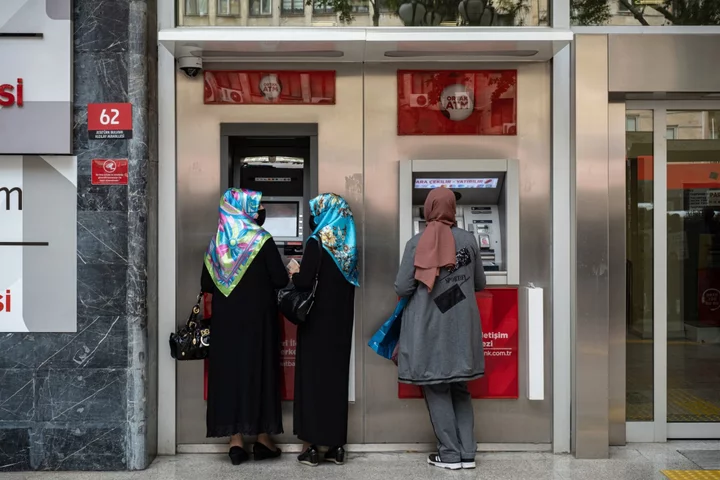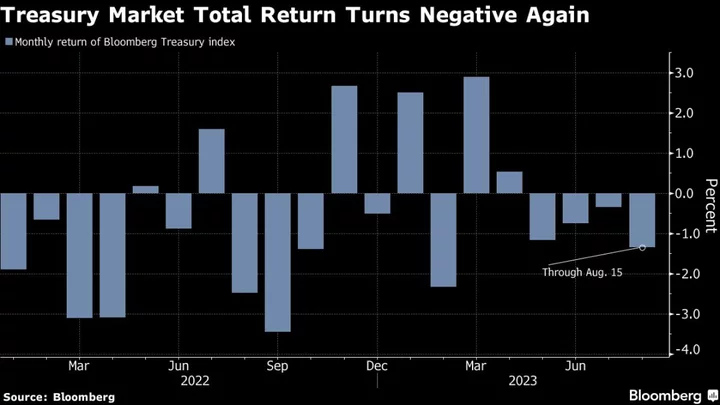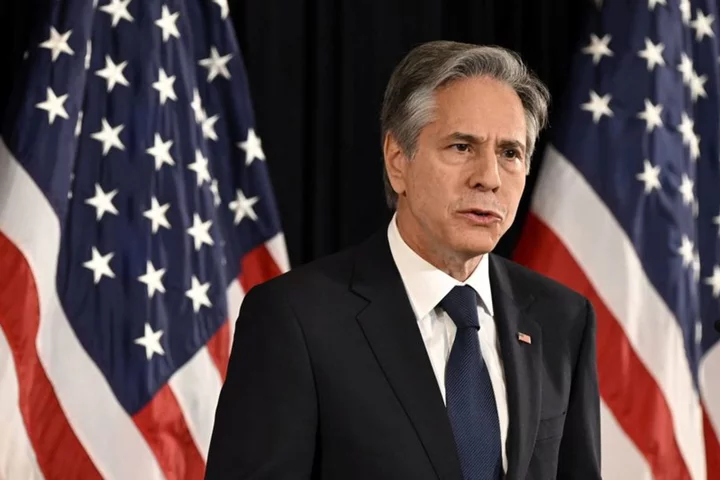Turkey took a first step away from a tool designed to halt a selloff in the lira by imposing a rule that banks must increase their government bond holdings if they don’t convince their clients to shift to regular deposits in the currency.
The decision is aimed at weaning Turks off of so-called KKM accounts, in which people are offered generous interest rates to deposit lira in a mechanism whose return increases the more the lira depreciates, rather than exchanging the cash for more stable foreign currencies.
The KKM scheme — introduced to arrest a slide in the lira against the dollar after a 20% drop in December 2021 — slowed the decline even though the lira has still plunged 31% this year, the second most among emerging market currencies tracked by Bloomberg. The accounts have also put pressure on the central bank, which pays KKM depositors according to how much the lira depreciates.
The objective is “to contribute to strengthening macro financial stability by supporting Turkish lira time deposits,” the central bank said in a statement on Sunday. It pledged to continue rolling out similar steps.
Under the new rules, commercial banks whose clients don’t convert a certain ratio of their KKM deposits to regular lira accounts will have to purchase additional government bonds, according to a decree published in the official gazette.
The target set for the banks is a conversion rate of at least 50% of deposits to be in regular lira accounts and at least 5% for those converted to liras from foreign currencies.
Read more: Turkish Inflation Outlook at Its Worst in 21 Years on Weak Lira
KKM accounts currently total at about 3.4 trillion liras ($125 billion), more than 28% of all bank deposits. While the new rules incentivize banks to urge clients away from the KKM accounts, they don’t eliminate them.
“Apparently, the economy administration wants an exit from KKM but it cannot do that, so it’s implementing these macroprudential measures,” said Inanc Sozer, managing partner at Istanbul-based consultants Virtus Glocal.
The change follows a pivot by Turkish President Recep Tayyip Erdogan from his unorthodox views on inflation and interest rates after winning a crucial election in May.
He appointed former Merrill Lynch strategist Mehmet Simsek as finance minister and Hafize Gaye Erkan, a former First Republic Bank co-head, as governor of the central bank, which raised interest rates for the first time in over two years in June. The benchmark rate is expected to rise again to 20% from 17.5% on Aug. 24, according to a Bloomberg survey.
The new rules on KKM accounts are expected to boost lira deposit rates and may amount to allowing further lira depreciation, which will fuel inflation, said Sozer, who doesn’t expect a significant impact on the stock market after Friday’s drop of 3.2% in the benchmark index. Bond yields could fall in the short-term, he added.
Stocks have rallied 36% in 2023 in lira terms, amid soaring inflation that stood at 47.8% as of July from a year earlier. The central bank expects inflation to accelerate to 58% by year-end, a rate Sozer said would be “a miracle.”
The central bank also raised the reserve requirement ratios for FX deposits, which will force lenders to park more foreign currency at the regulator, according to a separate decree. The reserve ratio for FX accounts with maturities of up to a month was raised to 29% from 25%, while the ratio for accounts with maturities of as long as a year was set at 25%.
Meanwhile, a rule that imposed higher ratios for lenders whose lira deposits were lower than a set rate has been removed.
--With assistance from Tugce Ozsoy.
(Updates with details throughout.)









